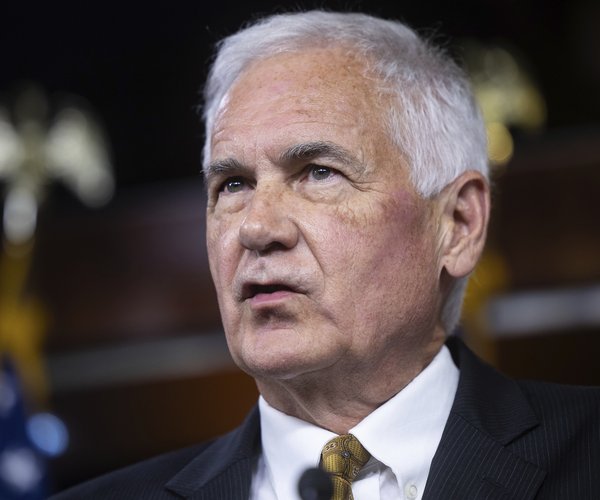Senator Alvarado-Gil (D-Jackson) authored legislation that aims to address a critical gap in the state's criminal justice system. Senate Bill 268 seeks to reclassify the rape of an intoxicated person as a violent felony if the defendant caused the intoxication of the victim in order to assault them. In California, rape is not considered a violent crime.
Every 68 seconds, an American is sexually assaulted according to the Rape, Abuse & Incest National Network (RAINN). RAINN adds that only 30% of sexual assaults are reported to law enforcement, equating to an egregious number of offenders left to walk free and exploit additional victims.
Anabel Velasquez, a survivor of sexual assault resulting from intentional intoxication, stands as one of the many victims advocating for change. As April marks Sexual Assault Awareness Month, Velasquez is raising her voice to shed light on the significant impact of SB 268. She said passage of this legislation is vital, as it will provide a beacon of hope for countless victims who, like her, often carry unjustified blame.
“SB 268 underscores the seriousness of this crime and can be a deterrent for perpetrators moving forward,” Velasquez said. “This bill will empower survivors like me and validate our experiences, making us feel valued as survivors. My perpetrators destroyed me physically and emotionally – I would have gotten a piece of me back had SB 268 been in effect at my time.”
Senator Alvarado-Gil emphasized the importance of this legislation, saying, "It is imperative that we provide equitable justice for victims of sexual assault. By classifying rape of an intoxicated person as a violent felony, we are sending a clear message that this heinous crime will not be tolerated in our society."
In recent years, California has made strides in advancing justice for victims of rape. The Legislature increased sentencing enhancements of perpetrators convicted of spousal rape to mirror those convicted of non-spousal rape. Additionally, the Legislature repealed the Penal Code section that previously defined the offense of spousal rape. This change reflects the principle that all forms of rape are now recognized as such, irrespective of the relationship between the offender and the victim.
“The current message our criminal justice system sends is if you intentionally plan to rape someone by using alcohol or drugs to impede their ability to say no, that's somehow better than raping them by force,” said May Rico, Executive Director for Healthy Alternatives to Violent Environments (HAVEN). “The time of victim blaming survivors of drug and alcohol-facilitated assault should be long behind us. The removal of this bias from the law is long overdue.”
SB 268 represents another crucial step towards achieving parity for victims of sexual assault in California. By closing this legal loophole, the state is reaffirming its commitment to holding perpetrators of sexual violence fully accountable for their actions.
Alanis’ humanitarian bills pass policy committees unanimously
Assemblymember Juan Alanis announced that two of his bills related to homelessness and substance use passed through their respective policy committees with no opposition.
The first bill, AB 1817, updates the Homeless Youth Act of 2018 by establishing two additional goals for preventing homelessness among the ages 12-24. If passed, these would be included in the list of goals that are measured by the Interagency Council on Homelessness to guide funding and policy efforts.
“AB 1817 is a common-sense measure that would require the Council to examine more than just homelessness,” said the Assemblyman. “Homelessness goes hand-in-hand with issues like food insecurity and unemployment, and our bill takes a step towards fixing all three.”
The second bill, AB 1996, would require high-capacity public venues like stadiums and amusement parks to make naloxone hydrochloride easily accessible. The bill also requires the Department of Public Health to create and administer an opioid overdose training program for these venues.
“Addressing the opioid crisis has been one of my top priorities since I was elected,” said Assemblymember Alanis. “AB 1996 ensures that entertainment centers like sports stadiums and concert venues are adequately prepared with life-saving Narcan in the event of an overdose emergency.”
AB 1817 passed the Assembly Human Services Committee with a 6-0 vote, while AB 1996 passed through the Assembly Health Committee with a 16-0 vote. Both bills will now advance to the Assembly Appropriations Committee for consideration.





